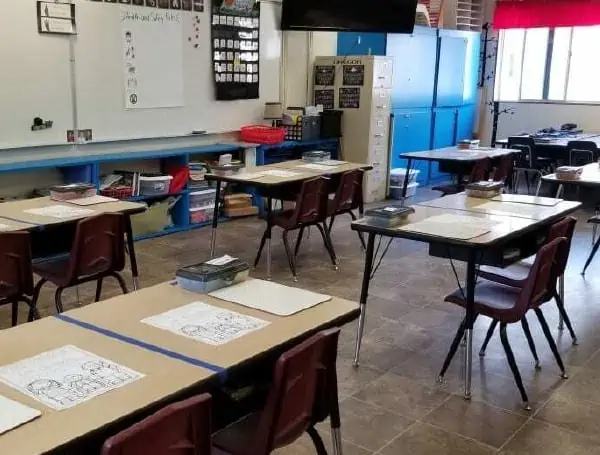The Florida Chamber Foundation is sounding the alarm about the state of math education in its newly released report, Aligning Math Education to Workforce Needs: Insights From Florida’s Employers.
The research underscores an “urgent need for action” to bridge the growing gap between the math skills taught in Florida’s K-12 classrooms and the competencies demanded by the state’s rapidly evolving job market.
This report follows the Foundation’s March 2025 publication, Math Matters: Bridging Gaps for Florida’s Future Workforce. By synthesizing data and analysis from statewide focus groups and surveys involving business leaders, educators, and parents, the new report paints a clear picture of the challenges and offers concrete recommendations for improvement.
READ: $1,000 For Every U.S. Newborn: Texas Sen. Cruz’s “Invest America Act” Gains Momentum
Dr. Keith Richard, Vice President of Research at the Florida Chamber Foundation and the report’s principal author, emphasized the critical nature of the findings.
“Our findings suggest a significant, yet solvable, misalignment between the skills taught in Florida’s K-12 classrooms and the skills required by Florida’s employers,” he stated. “Our education system must continue evolving to bridge this gap. By aligning curriculum with real-world applications and strengthening partnerships between educators and industry, we can ensure students are equipped with the practical math skills needed for long-term career success.”
The report highlights the pervasive importance of math proficiency across various job sectors, from entry-level to leadership roles. Employers consistently identified skills such as problem-solving, data analysis, and financial literacy as essential for job performance, effective decision-making, and overall workforce readiness.
“This report is a call to action. While 65% of Florida’s eighth graders are math proficient, there’s still ground to cover,” noted Bemetra Simmons, President & CEO of the Tampa Bay Partnership. “Every percentage point represents a student’s future and our region’s economic strength. Let’s use these findings to drive collaboration among educators, business leaders, and policymakers—building a talent pipeline rooted in strong math skills to secure Florida’s future.”
READ: Florida Gov. DeSantis Announces Expanded Immigration Enforcement Plan
The concerns raised in this new research resonate with the Florida Chamber Foundation’s 2016 report. While the earlier report focused on the critical need to improve reading outcomes, this new analysis shines a light on the parallel urgency for enhancing math education as Florida strives to become a Top 10 global economy by 2030.
The report pinpoints several key findings regarding K-12 math education in Florida:
- Misalignment: A significant gap exists between the math skills emphasized in Florida’s schools and the practical math requirements of the workplace. Employers across various industries report that crucial skills like problem-solving, data analysis, and financial literacy are often lacking in job applicants. Both business leaders and some educators noted a deficiency in real-world applications within the K-12 math curriculum.
- Hiring Challenges: Many Florida businesses are struggling to find candidates with the necessary math skills to fill open positions.
- Beyond Technical Skills: Both educators and business leaders stressed the importance of “soft skills” such as communication, teamwork, and critical thinking as essential complements to technical math competencies in the workforce.
To address these challenges and improve outcomes, the Florida Chamber Foundation’s report offers several key recommendations:
- Supplementing Curriculum: Integrating practical, “real-world” applications into math lessons and curriculum to make the subject matter more relevant and engaging for students.
- Early Career Exposure: Providing students with early exposure to careers that heavily utilize math skills to foster interest and understanding of the subject’s importance in various professional fields.
- Enhanced Partnerships: Strengthening collaboration between industry and education to align curriculum with workforce needs, share resources, and provide students with valuable real-world learning experiences.
The Florida Chamber Foundation’s latest report clearly calls on stakeholders across the state to prioritize and invest in strengthening math education.
Closing these identified gaps is not just an educational imperative but a crucial step in ensuring Florida’s future economic prosperity and its ambitious goal of becoming a top-10 global economy.
Please make a small donation to the Tampa Free Press to help sustain independent journalism. Your contribution enables us to continue delivering high-quality, local, and national news coverage.
Connect with us: Follow the Tampa Free Press on Facebook and Twitter for breaking news and updates.
Sign up: Subscribe to our free newsletter for a curated selection of top stories delivered straight to your inbox.

